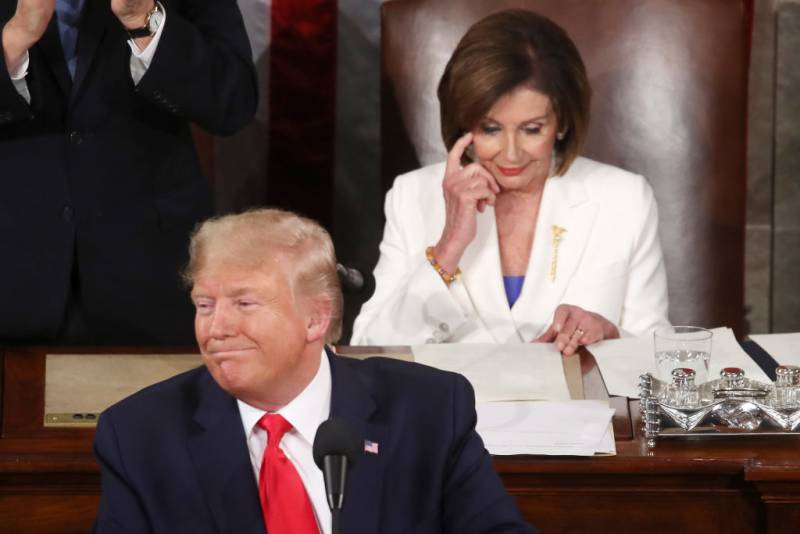Nancy Pelosi was applauded on social media this week for using the same body-shaming tactics against President Trump that he has previously employed against opponents.
Nancy Pelosi, ‘President Plump’ and America’s Obsession With Fat-Shaming

While appearing on Anderson Cooper 360, and commenting on Trump’s claim that he’s taking hydroxychloroquine to ward off COVID-19, the House Speaker said: “He’s the president. I would rather he not be taking something that has not been approved by the scientists. Especially in his age group, and in his, shall we say, weight group: ‘Morbidly obese,’ they say.”
Pelosi’s comments were shrouded in concern for the president’s health; a methodology familiar to anyone who has ever been fat-shamed. Her decision to specifically use the term “morbidly obese” was instantly recognized by the public as a thinly veiled insult, and Twitter users picked up that cue and ran with it. The hashtag #PresidentPlump started trending immediately, along with #PlumpTrump, #TrumpIsMorbidlyObese and, to a lesser degree, #GirtherMovement.
The tone on social media ran the gamut: there was casual amusement, outright bullying and ideas of karmic retribution.
The mass mocking of Trump’s weight was embraced so fervently that the few Twitter users who stepped up to call it fat-shaming were shut down fairly swiftly—sometimes even by self-identified fat people. The sense of giving Trump a taste of his own medicine was prioritized above all else. Several users directly pointed out that the president was fair game because he has been a vocal critic of other people’s appearances since his 2016 campaign.
The problem is, gleeful, widespread attacks on public figures because of their weight—regardless of who they are and what they’ve done—help to normalize and sanction the bullying of bigger people everywhere. It reinforces the idea that fatness is something to be mocked, something that makes people lesser-than, something that signifies slovenliness and ugliness. (If people openly “LOL” at the president for having a “mom gut,” that also makes moms, and frankly anyone lacking washboard abs, feel bad about their appearance.)
The thin-equals-healthy narrative that Pelosi deployed on CNN has roots in the BMI chart—a grossly oversimplified way to assess human health that fails to take into account muscle mass, bone structure or fitness levels. The chart is still in widespread use despite a 2009 study that found that people in the BMI “overweight” category live longer than people in both the “normal” and “underweight” ones.
Just as the BMI is regularly used as a way to legitimize fatphobia, it also found its way into the Trump-Pelosi social media storm.
In the end, embracing “#President Plump” is woefully short-sighted. Though many of the people enjoying the joke online are openly left-leaning, there seems to be an almost total failure to understand the consequences this will have. First for perceived fat people and body positivity campaigners and, later, for all liberals.
Going after, and getting distracted by Trump’s physical attributes makes a mockery of the Obama-era “When they go low, we go high” motto. It stands as a glaring symbol that basic civility exists on neither side of the aisle. And, worst of all, it takes the focus away from Trump’s words and policies in the time of COVID-19. All of which deserve significantly more scrutiny than his waistband.

